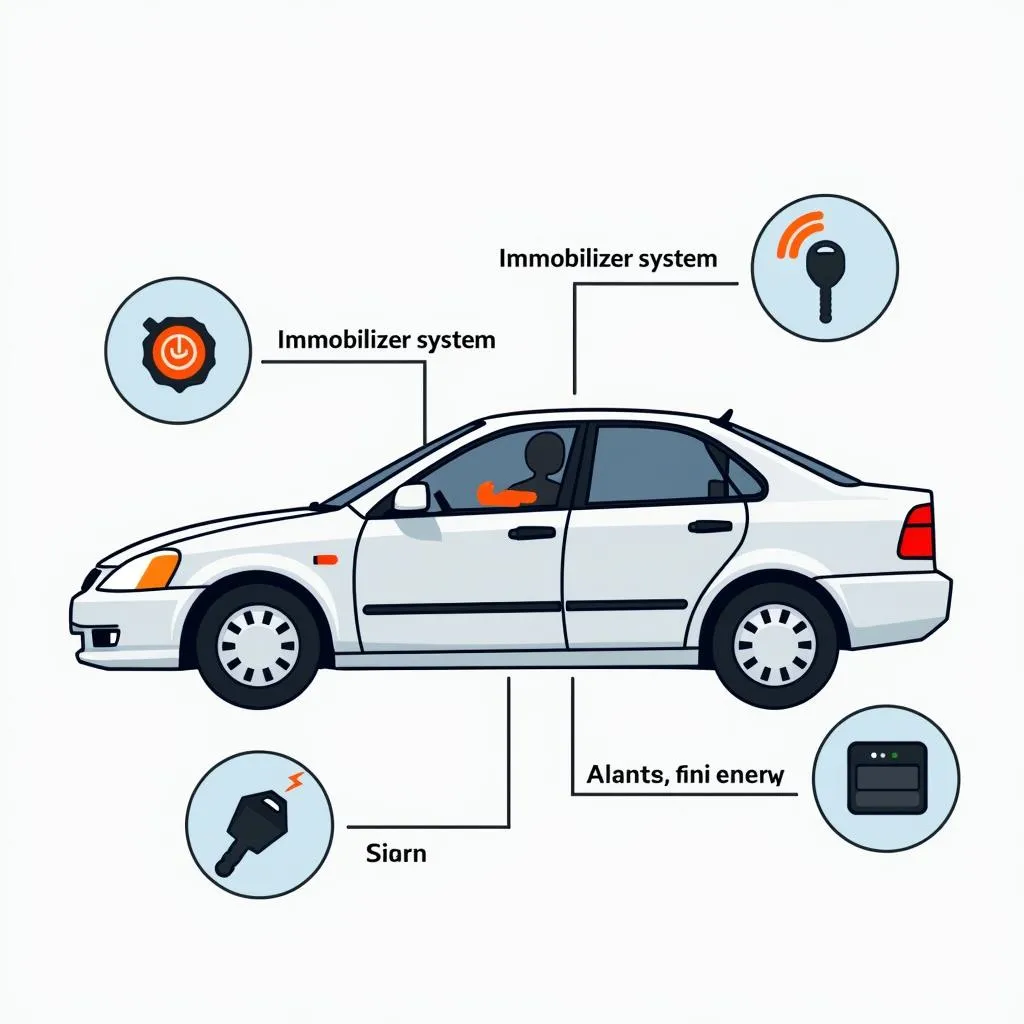Your VW Passat is a fantastic car, but when that AdBlue warning light pops up, it can throw a wrench in your plans. This guide dives into the common reasons behind this warning, the potential consequences of ignoring it, and how to deal with it, including how to reset the AdBlue system. We’ll also cover some helpful tips for preventing future AdBlue issues.
What is AdBlue?
AdBlue is a urea-based solution that’s injected into your VW Passat’s exhaust system to reduce harmful nitrogen oxides (NOx) emissions. It works by reacting with NOx to convert them into harmless nitrogen, water, and carbon dioxide. Modern diesel engines, like those found in the VW Passat, rely on AdBlue to meet strict emission regulations.
Why You’re Seeing an AdBlue Warning
There are several reasons why your VW Passat’s AdBlue warning light might be flashing, each with its own set of solutions:
1. Low AdBlue Level
This is the most common reason for an AdBlue warning. Your Passat’s system monitors the AdBlue level, and when it gets too low, the warning light illuminates. To fix this:
- Top up the AdBlue tank: Locate the AdBlue tank, usually in the engine compartment, and refill it with the proper AdBlue solution. You can find AdBlue at most auto parts stores and gas stations.
- Check for leaks: After refilling, inspect the tank and lines for any leaks. If you see any, it’s important to get them repaired promptly.
“AdBlue is crucial for your Passat’s performance and longevity. Don’t ignore a low AdBlue warning; it can lead to serious problems,” says Mark Thompson, a certified VW technician with over 20 years of experience.
2. AdBlue System Malfunction
If the AdBlue system is malfunctioning, even if your tank is full, the warning light might still illuminate. This could be caused by:
- Clogged AdBlue injector: The AdBlue injector, responsible for spraying the solution into the exhaust, can become clogged with debris or crystals.
- Faulty AdBlue sensor: The sensor responsible for monitoring the AdBlue level may be malfunctioning, providing inaccurate readings.
- Software glitch: In some cases, a software glitch in the vehicle’s control module might trigger the AdBlue warning, even if the system is functioning correctly.
“Troubleshooting an AdBlue system malfunction requires specialized tools and knowledge,” notes Thompson. “It’s best to take your Passat to a qualified VW mechanic for diagnosis and repair.”
3. AdBlue Quality Issues
Using the wrong type of AdBlue or contaminated AdBlue can also trigger warnings. Always use genuine AdBlue, as it’s specially formulated for use in VW vehicles. Avoid using cheap or generic AdBlue, as it might not be compatible and could damage your system.
Consequences of Ignoring the Warning
Ignoring the AdBlue warning light can have several consequences:
- Reduced engine performance: The car may go into “limp mode,” limiting its power and acceleration.
- Engine damage: If the AdBlue system malfunctions, it can cause damage to the exhaust system or even the engine itself.
- Emissions violations: Failing to maintain the AdBlue system can result in failing emissions tests and fines.
How to Reset the AdBlue Warning
In many cases, simply topping up the AdBlue tank will reset the warning light. However, if the warning persists even after refilling, you might need to reset the system manually. This process typically involves:
- Using a diagnostic tool: A specialized diagnostic tool can be used to reset the AdBlue warning light.
- Following the manufacturer’s instructions: Your VW Passat’s owner’s manual may have instructions for resetting the AdBlue system.
“Resetting the AdBlue warning yourself can be tricky,” warns Thompson. “If you’re unsure, it’s always best to consult a professional.”
Preventing Future AdBlue Issues
Here are some tips for preventing future AdBlue warning lights:
- Use high-quality AdBlue: Always use genuine VW AdBlue to ensure compatibility and avoid potential damage.
- Avoid topping up with low-quality AdBlue: Don’t mix different brands or types of AdBlue.
- Check AdBlue level regularly: Regularly check the AdBlue level in your Passat’s tank, especially if you frequently drive long distances.
- Maintain the AdBlue system: Have the AdBlue system inspected during regular service appointments to ensure it’s functioning properly.
FAQs:
1. How often should I refill my AdBlue tank?
The frequency of AdBlue refills depends on your driving habits. Check your owner’s manual for recommended intervals.
2. Can I use regular DEF fluid in my VW Passat?
While DEF (Diesel Exhaust Fluid) is similar to AdBlue, it’s not always compatible with all VW vehicles. Always use genuine VW AdBlue.
3. How much does it cost to refill AdBlue?
The price of AdBlue varies depending on the retailer, but it’s generally quite affordable.
4. Can I add AdBlue to my gasoline engine?
No. AdBlue is specifically designed for diesel engines. Adding it to a gasoline engine can cause damage.
5. Where can I find AdBlue in my area?
AdBlue is readily available at most auto parts stores, gas stations, and some grocery stores.
Remember, addressing AdBlue issues promptly is important for your VW Passat’s performance and longevity. By understanding the causes, consequences, and solutions, you can keep your Passat running smoothly and avoid costly repairs.

